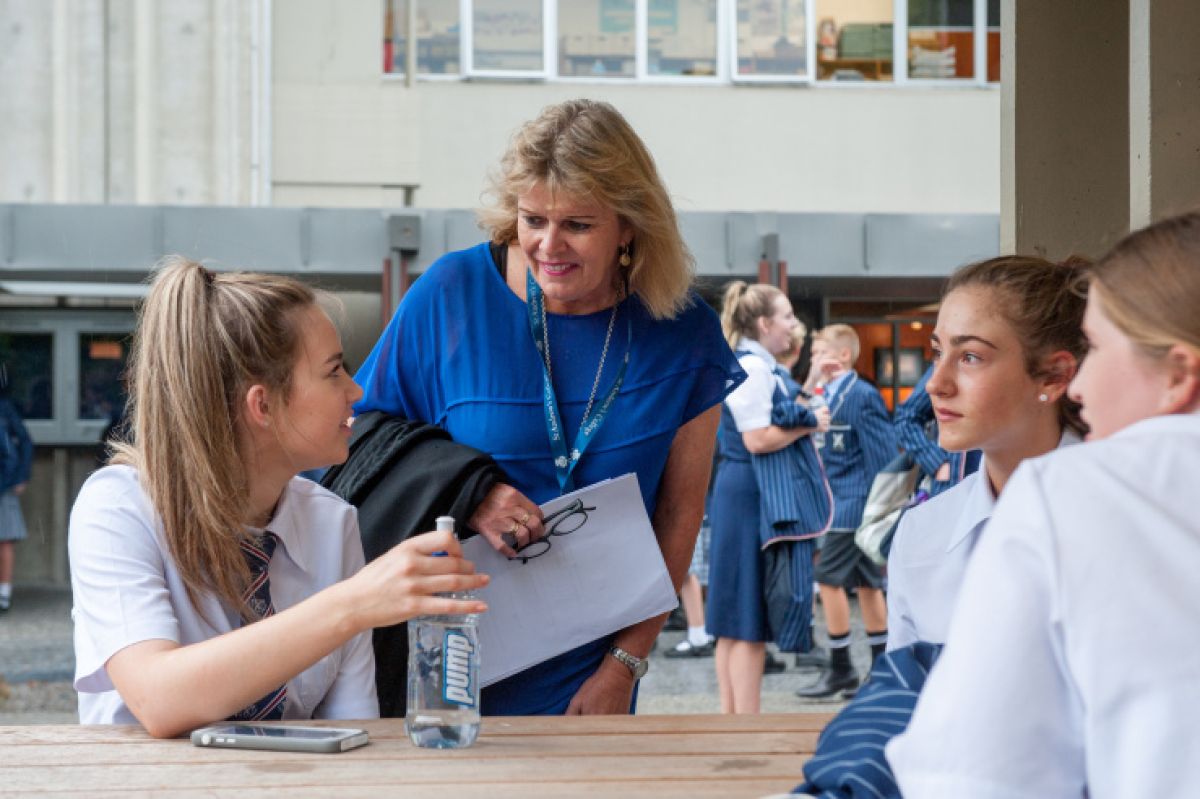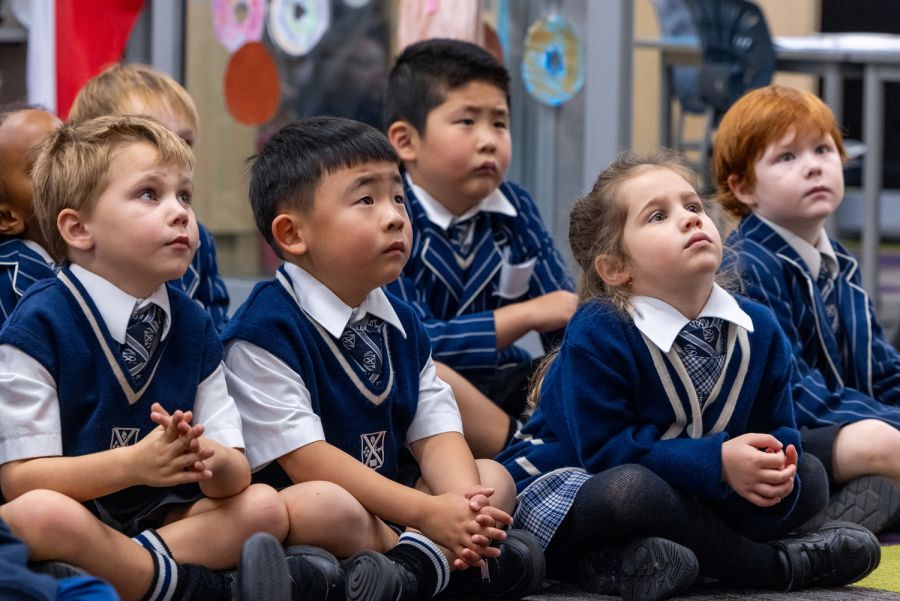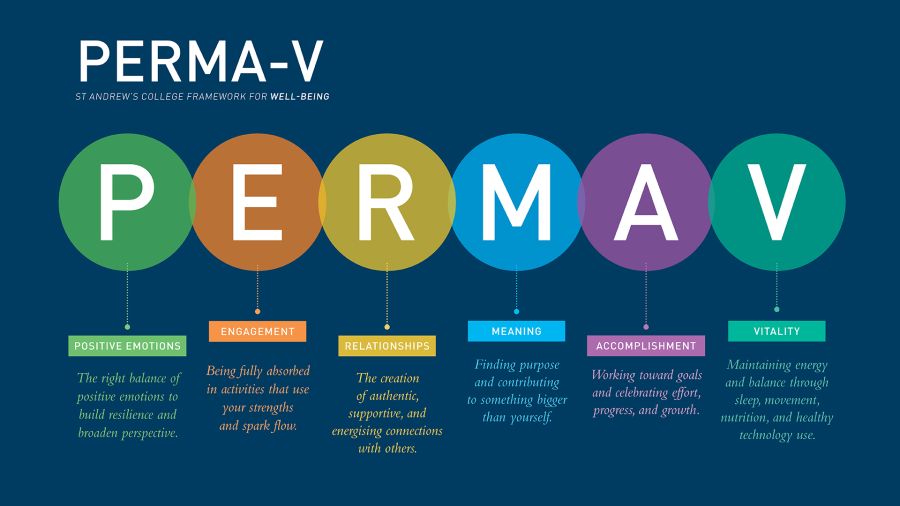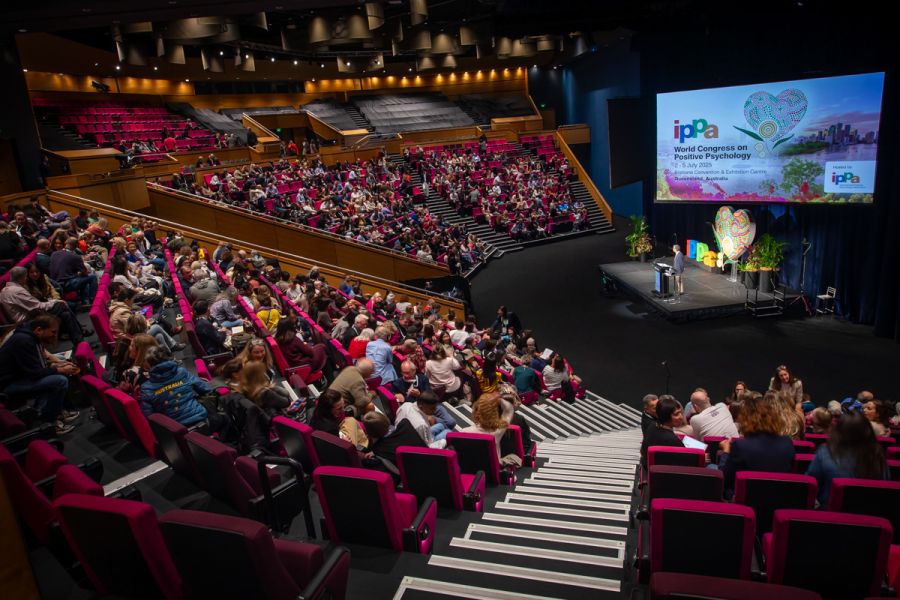On Positive Education
3 April 2018
Written by Head of Well-being, Kerry Larby
Some of the most interesting questions begin with a ‘why’.
Students ask ‘why’ to find relevance and purpose in their learning, while teachers ask ‘why’ to develop greater understanding of their work.
Instead of, How do you write an essay? How about: Why do you write an essay?
One of the big questions for parents and educators to ponder is – Why do we go to school? Why do we provide an education?
As I have progressed in my career, I have reflected on these questions a lot. At St Andrew’s College one of our ‘whys’ is to help our students use self-awareness and self- knowledge to make a positive contribution to society; to find a purpose.
Yes, through education we have the potential to influence our future citizens, employees, leaders and thinkers. It’s meaningful stuff.
I believe the influential educational philosopher and reformer John Dewey summed it up well when he said; Education is not preparation for life; education is life itself.
In 2016, St Andrew’s College made a commitment to visibly embrace the holistic philosophy of Positive Education. This is exciting for me personally, because Positive Education is an educational philosophy which truly aligns with my own ‘why’.

What is Positive Education?
Positive Education brings together best practice in education with evidence-based research from the field of Positive Psychology.
School is viewed as a place where students not only cultivate their intellectual minds, but also develop a broad set of character strengths, virtues, and competencies, which together support their well-being. The main goal of Positive Education is to support human flourishing in the widest possible sense – in relationships with others, engagements, accomplishments, and mental and physical well-being. Positive Education focuses on broad outcomes for life.
At the World Government Summit, Positive Education proponent, Sir Anthony Seldon stressed the dangers of educational reform which focus solely on improving academic achievement. In these we are missing the other core elements of our children, their psychological and physical well-being and their character. Evidence suggests that with a focus on the whole child, we will improve academic progress in the process.
The International Positive Education Network (IPEN) simplify the definition of Positive Education to this simple equation; Academics + Character and Well-being.
Well-being is a critical part of the equation. Advances in neuroscience and psychology research are now showing what many teachers have anecdotally known for a long time – learning is profoundly affected by well-being.

At St Andrew’s, we have been closely following the work of Geelong Grammar and St Peter’s College in Adelaide, which are doing great work and providing a roadmap for Positive Education. Geelong Grammar’s Director of Positive Education, Justin Robinson, wrote an excellent blog post, which beautifully sums up his thoughts on the field.
I love Robinson’s ideas on bringing the outcomes of Positive Education to fruition:
Some of these seeds will germinate straight away and some seeds may lie dormant for a period of time before germinating, and some seeds may never germinate. Our goal is to sow seeds generously.
Geelong Grammar defines flourishing as a combination of ‘feeling good and doing good’. Contributing though a caring perspective and ‘doing good’ is most important. This includes caring for others, caring for causes and caring for oneself.
There is growing research in the field of Positive Education, including at government level, which St Andrew’s College is also following with interest.
Dr Martin Seligman, an American psychologist and educator and leading authority of Positive Psychology, believes schools are the primary place where the values of a culture are instilled in young people. He says if teachers transmit optimism, trust, and a hopeful sense of the future, this will positively influence their students’ perception of the world. Therefore he says, positive schools and positive teachers are the fulcrum for producing more well-being in a culture.

By following their curiosities, and asking their own ‘why’ questions, our young people begin to find out about their strengths and passions. They clarify their values. They build relationships and develop self-awareness and character.
As part of our focus on well-being, this month we are sending over 15 educators from the Preparatory and Secondary Schools to Positive Education conferences in both New Zealand and Australia. This is an important opportunity for our teachers and leaders to learn about evidence-based research and best practice teaching and learning, which they can pass onto our students.
I’d love to hear your perspective on the purpose of education? What do you want most for your children?

Related Posts


